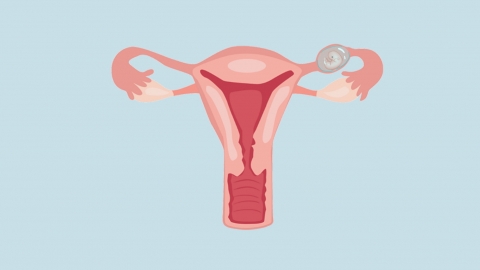What are the effects of hydrosalpinx during the IVF process?
Generally, hydrosalpinx may affect in vitro fertilization (IVF) by influencing oocyte pickup and transport, impairing embryo implantation, increasing the risk of ectopic pregnancy, leading to a decline in embryo quality, and increasing the probability of miscarriage. A detailed analysis is as follows:

1. Impact on Oocyte Pickup and Transport
Hydrosalpinx can reduce the motility of the fallopian tubes, affecting the process by which oocytes are picked up from the ovaries into the fallopian tubes, thereby interfering with the union of sperm and oocyte. Additionally, fluid accumulation may hinder the transport of the fertilized egg, preventing it from reaching the uterine cavity for implantation.
2. Impact on Embryo Implantation
Fluid from hydrosalpinx can flow into the uterine cavity, causing intrauterine fluid accumulation. This backflow can interfere with embryo positioning and adhesion within the uterine cavity, thus impairing embryo implantation. Moreover, the fluid may alter the expression of integrins in the endometrium, reducing endometrial receptivity and consequently diminishing the embryo's ability to implant.
3. Increased Risk of Ectopic Pregnancy
Ectopic pregnancy refers to the implantation and development of a fertilized egg outside the uterine cavity. Hydrosalpinx increases the risk of ectopic pregnancy, primarily due to inflammation within the fallopian tubes caused by fluid accumulation, which hinders the movement of the fertilized egg, thereby increasing the likelihood of ectopic implantation.
4. Decline in Embryo Quality
Hydrosalpinx contains various inflammatory factors, toxins, and other harmful substances. When these substances reflux into the uterine cavity, they may exert toxic effects on embryos, affecting their developmental potential, leading to a decline in embryo quality, increasing the risk of chromosomal abnormalities, and reducing the rate of high-quality embryos.
5. Increased Risk of Miscarriage
Hydrosalpinx can cause tubal dilation, which may interfere with the transport of the fertilized egg, leading to implantation and development of the embryo within the fallopian tube, thereby increasing the risk of miscarriage.
Patients diagnosed with hydrosalpinx are advised to seek timely treatment. Under a doctor's guidance, anti-infective medications such as amoxicillin capsules or cefuroxime sodium for injection may be used. If symptoms are severe, surgical treatment options such as laparoscopic salpingostomy or salpingectomy may also be considered.






